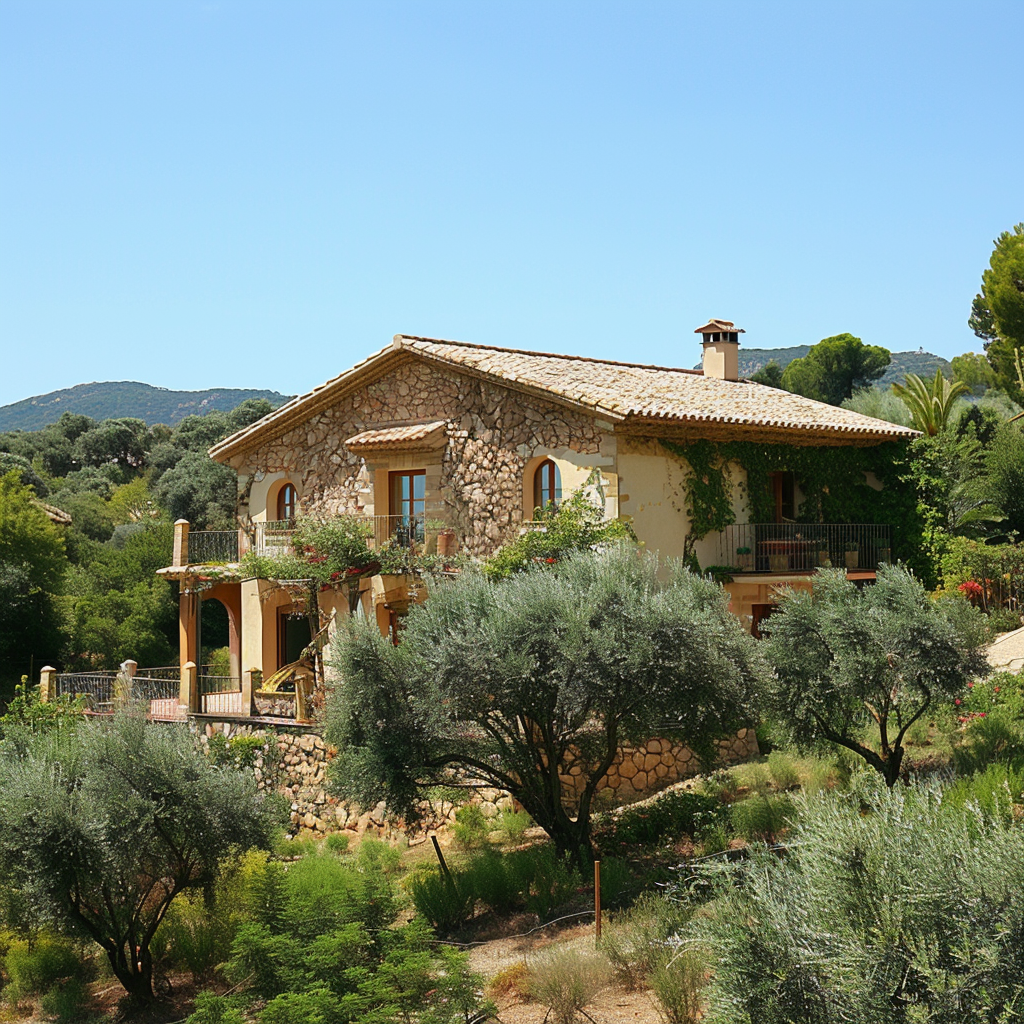Many olive oil lovers are thinking about the possibility of purchasing real estate in this country for home olive production. However, choosing a region before buy house in Spain requires careful consideration of various factors such as climate, soil composition and availability of infrastructure.
Suitable regions for home olive production in Spain
Spain offers a variety of regions with different climates and soil conditions, making the choice of location for home olive production interesting and varied. Here are some of the most suitable regions:
- Andalusia: It is the largest olive producing region in Spain. The Mediterranean climate with mild winters and hot summers creates ideal conditions for growing olive trees. Regions such as Jaen and Cordoba are famous for their olive groves and high quality oil.
- Extremadura: Located in western Spain, Extremadura is also known for its olive groves. The continental climate with hot summers and cold winters favors the development of the olive tree and creates conditions for the production of high quality oil.
- Castile-La Mancha: This region, located in the center of the country, is also an important producer of olive oil. The continental climate with cold winters and hot summers provides favorable conditions for the growth of olive trees.
- Catalonia: In the northeast of the country, Catalonia is also of interest for domestic olive production. The diversity of climates and soil types creates opportunities for different olive varieties and unique oil characteristics.
The choice of region for home olive production depends on individual preferences, budget and investor goals. Each of the above regions offers its own unique advantages and opportunities to create your own corner with olive groves.
Types of real estate for olive production
When choosing property for olive production in Spain, it is important to consider the different types of property available, which can range from houses with plots of land to villas and country estates. Here are some of the property types that may be suitable for olive production:
- Finka (Finka): A traditional Spanish country estate that usually includes a house, a plot of land and infrastructure for agricultural purposes. Finca can be an ideal choice for olive production as it often offers a large enough area of land for olive groves.
- House with land: This is a type of real estate that includes a separate house with an adjacent plot of land. Homes with small lots may be suitable for those who prefer a more private location or are on a budget.
- Villa: A villa is usually a more luxurious and spacious property with a larger plot of land. Villas can be a great choice for those looking for luxury accommodation in a suburban area with plenty of space for olive groves.
- Country estate: This is a type of real estate that can include not only a house and land, but also additional buildings such as barns, warehouses and farm buildings. Country estates can offer extensive opportunities for various agricultural activities, including olive production.
The choice of property type depends on the investor’s needs, preferences and budget, as well as the size of the olive grove they plan to create.
Budget and financial aspects when buying a house for olive production
When purchasing a home for olive production in Spain, it is important to consider not only the cost of the property, but also the additional costs associated with establishing and managing an olive grove. Here are some financial aspects to consider:
- Property price: The price of a house in Spain can vary greatly depending on its location, type and size. Assess your budget and determine how much you are willing to spend on purchasing real estate.
- Cost of a plot of land: A plot of land for an olive grove can be a significant expense. Consider its cost when considering your budget.
- Costs to create an olive grove: You may need to invest in olive tree planting, irrigation systems, fertilizers and equipment to maintain the grove. Consider these costs when estimating your overall budget.
- Annual expenses: In addition to the initial costs, consider the annual costs of maintaining an olive grove, including labor, equipment maintenance, and the purchase of necessary materials.
Budgeting with all these financial aspects in mind will help you make informed choices and successfully implement your olive production project in Spain.
Legal aspects when purchasing real estate for olive production
When purchasing property in Spain for olive production, it is important to take into account the various legal aspects to avoid unpleasant surprises and ensure the legality of the transaction. Some of the key legal aspects include:
Legal use of land: Before purchasing a property, make sure that the plot of land has the right to agricultural use, which is necessary for olive production.
Ownership verification: It is important to check that the property you are about to buy has no legal encumbrances or disputes over ownership.
Permits and licenses: Check whether any special permit or license is required to establish an olive grove on the purchased land and ensure that all necessary documents are in place.
Taxes and fees: Consider the various taxes and fees associated with buying property in Spain, such as property tax and property acquisition tax (ITP).
Contract of sale: Always enter into a purchase and sale agreement with the real estate seller, which contains all the terms of the transaction, rights and obligations of the parties.
Real estate market research and industry trends
Spain offers a variety of regions and opportunities for purchasing property for olive production, and researching the property market is an important step to making an informed decision. Some factors to examine when researching the real estate market include:
Property prices: Research current property prices in different regions of Spain to determine your budget and purchase price expectations.
Supply and Demand Trends: Research supply and demand trends in the real estate market in selected regions to understand how competitive the market may be and how this may affect prices.
Forecasting future development: Assess the prospects for the real estate market in selected regions to determine whether it is worth investing in real estate in a given location in the long term.
Infrastructure and amenities: Research the availability of infrastructure such as roads, water and electricity, as well as proximity to shopping, schools and medical facilities, which may be important to the ease of living and working on your property.
Researching the property market and industry trends will help you make an informed decision when purchasing olive production property in Spain.
Buying a house in Spain for olive production is an investment that can bring profit and enjoyment from the growing and production process. However, before making a purchasing decision, it is important to consider many factors such as location, infrastructure, climate, soil and legislation. It is also important to assess your financial capabilities and needs in order to make the right choice.
Advantages of home olive production in Spain – ability to control product quality, saving on transportation costs. Disadvantages of home olive production in Spain – high initial investment, the need to study technologies for production and care of plants.
Choose regions with a warm and sunny climate, such as Andalusia, Valencia and Murcia. Pay attention to the quality of the soil, it should be fertile and well-drained.

